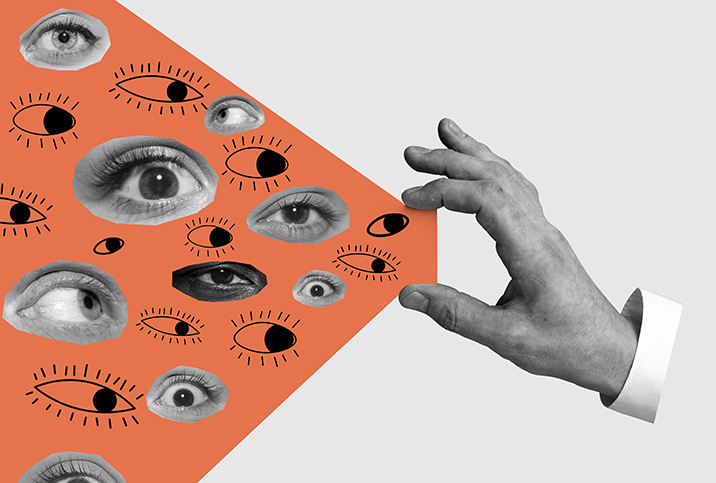Try Reading Body Language—Yours, Too

Human beings aren't mind readers, but we've definitely evolved to be "body readers."
Body language likely predates verbal communication. As humans, and animals, we're usually speaking with our bodies in one way or another even when we don't realize it. Whether we're waving our hands in excitement or covering our eyes in fear, we are conveying our innermost emotions to people around us, often without saying a word.
"Body language is the nonverbal communication that humans and animals learn to use in place of, or to supplement, verbal communication," said Sam Lazenby, M.S., a case manager for Bluebonnet Trails Community Services, a mental healthcare service in Round Rock, Texas. "Body language informs interactions on the subconscious and conscious levels, giving individuals context for subtext, attraction and potential self-defense mechanisms."
The body often reacts to stimuli before the brain does, making it an excellent receptor of our surroundings.
"People generally believe that they have an emotion and then their body expresses it, but actually, our body often works much quicker than our brain," said Nicole Rubin, L.P.C., a therapist in private practice in Atlanta. "Often, I notice that the body is already responding before the brain has caught up."
The benefits of learning to read body language better are twofold: You can become more intuitive with people around you and you can become more intuitive with yourself. You can also examine your own body language for clues to how you're feeling, especially in areas where emotions are complicated and messy—such as romance.
When your body says yes
It's important to get comfortable with your own body language in order to become more open and receptive to your partner's.
"In relationships, learning to see body language is the first step," Rubin explained. "We often miss our partner's nonverbal cues because our own body is talking too loudly. The best way to accurately perceive your partner's body is to regulate your own."
If you've ever seen a video of someone winning the lottery, you know the physical signs of their excitement are outwardly apparent. They scream, jump and perhaps cry tears of joy. But excitement—and arousal—can be expressed by the body in much subtler ways.
"When we are excited or aroused, we might notice subtle dilation of the pupils and mirroring of the other person's body language," Lazenby said.
If you're on a date with someone new, the nerves can be overwhelming. Take a moment to pay attention to what your bodies are doing. Mirroring each other's movements and making a lot of direct eye contact may be signs you're both open to exploring the interaction further. Additionally, being literally open is a good sign: Uncrossed arms and relaxed posture suggest comfort with the other person.
When your body says no
Conversely, it's important to recognize when your body is uncomfortable or, biologically speaking, sensing a threat. Humans have evolved to keep safe from perceived threats, so our bodies often react to them far more quickly than our brains do.
"When we are scared or nervous, we might close ourselves off by literally crossing our arms or legs, turning away from others or avoiding eye contact," Lazenby said.
If you're unsure how you feel about approaching intimate territory with a partner, look at the messages your body is sending. If your arms are crossed and you're avoiding sitting too close, you may not want your personal space invaded. If your body is tense and you can't seem to lean back comfortably in your chair, these may be signs you want to leave the situation.
Furthermore, if your body starts to show signs that can represent anger, it may be signaling that it senses danger.
"Anger is often the biggest emotion that causes us to shift something in our lives, so with anger, you may notice big movements that might support the animal body fighting to get away from a threat," Rubin explained. "In yourself, you may notice that your breath moves from deep belly breaths to short chest breathing, which is the type of breath you would need to run away. You might notice all the blood rushing to your arms and legs to support you kicking, punching or shoving.
"If you can get out of a judgmental mindset and listen to the signals your body is sending you, you can often find out what your body is viewing as a threat and take good care of yourself," she added.
Listen to what your body's telling you
The body often assesses its surroundings before the brain has time to do so. Emotions can be complicated, but our biology can help us sort through them.
"Body language is actually the first and usually most accurate tool I use to get information from my clients," Rubin noted.
There's a reason the "gut feeling" phenomenon exists. When we trust what our bodies are telling us, they rarely steer us wrong.


















